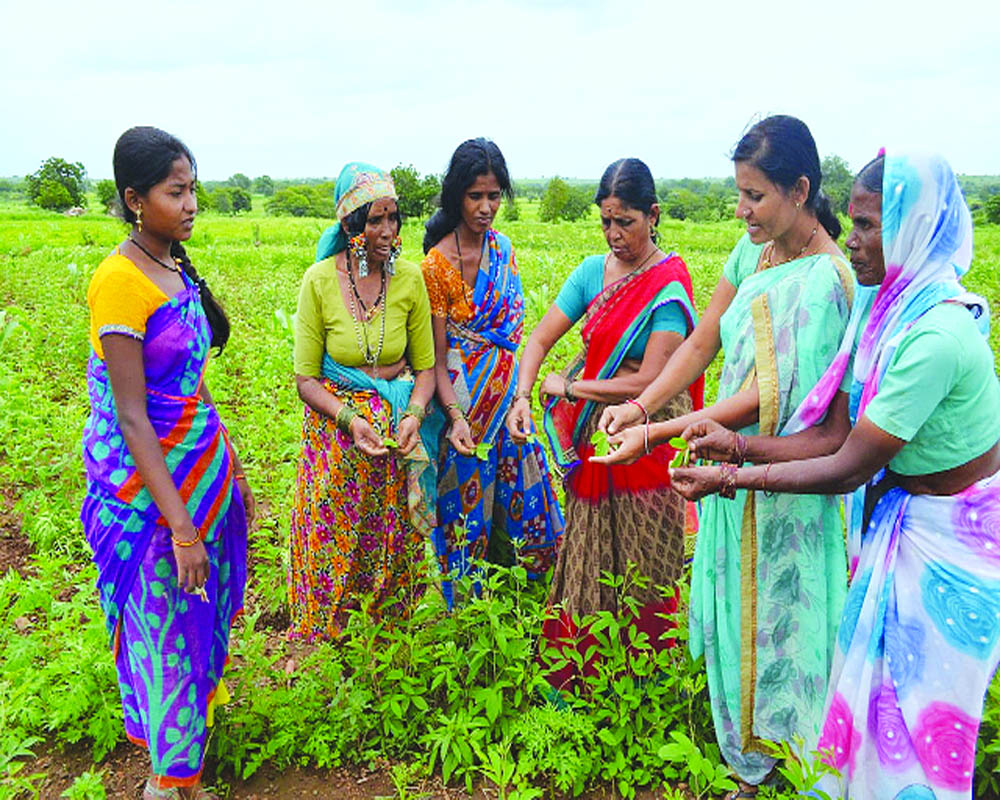By empowering women farmers, we can promote sustainable and resilient agriculture, and contribute to a more equitable and just society
Climate change is one of the most pressing issues of our time, with far-reaching impacts on agriculture and food security. The current practices in agriculture are not only adding to the global greenhouse gas emission, drought, flood, and extreme weather events but threatening the livelihood. To address these challenges, there is a growing need to promote climate-informed agriculture that incorporates best practices and technologies to increase resilience and reduce emissions.
Women farmers play a critical role in agriculture, yet they are often overlooked and underserved. According to the Food and Agriculture Organization (FAO), women comprise 43 per cent of the agricultural labor force in developing countries, and up to 80 per cent in some regions. However, they often lack access to resources such as land, finance and information that are essential for their productivity and resilience. This is particularly true for women in rural areas, who may face additional challenges related to gender norms and cultural biases.
To promote climate-informed agriculture, it is important to engage women farmers and address their specific needs and challenges. Climate-smart agriculture combines adaptation and mitigation measures. Furthermore, it has emerged as a solution to address critical challenges in the space such as enhancing agricultural productivity, making agriculture resilient and contributing to climate change mitigation. Hence, certain measures we need to keep in mind while training women towards climate-informed agriculture are as follows.
Increase access to climate information and advisory services: Women farmers often lack access to weather forecasts, early warning systems, and other climate information that is critical for decision-making. By providing tailored climate services and training programs, women can better plan and manage their farms, reduce losses from extreme weather events, and improve their yields.
Promote gender-sensitive technologies and practices: Women farmers may have different needs and preferences than men and may face unique barriers to adopting new technologies and practices. By designing technologies and practices that are gender-sensitive, such as low-cost irrigation systems or improved seed varieties that are easier to manage, women farmers can improve their productivity and resilience.
Increase access to finance and markets: Women farmers often lack access to credit and markets, which can limit their ability to invest in their farms and earn a decent income. By providing financial and market support, such as microfinance loans or access to value chains, women farmers can improve their economic status and contribute to sustainable agriculture.
However, business development services, such as business management training, networks, mentorship opportunities, and market information, as well as financial services, are key to the success of women entrepreneurs. Many of these services are, however, gender neutral, or do not cater to the specific needs and realities of women entrepreneurs. Many NGOs and social organizations are working to provide inputs to women farmers keeping their specific requirements.
Address gender norms and stereotypes: Gender norms and stereotypes can limit women's participation in agriculture and hinder their access to resources and decision-making power. By promoting gender equality and challenging gender stereotypes, women farmers can have a greater voice in agricultural policies and practices and contribute to more resilient and sustainable agriculture. Indeed, climate-informed agriculture is essential for addressing the challenges of climate change and ensuring food security for all. To achieve this goal, it is important to engage women farmers and address their specific needs and challenges. By empowering women farmers, we can promote sustainable and resilient agriculture, and contribute to a more equitable and just society.
(The writer is CEO and Country Director, Child Fund India)


























